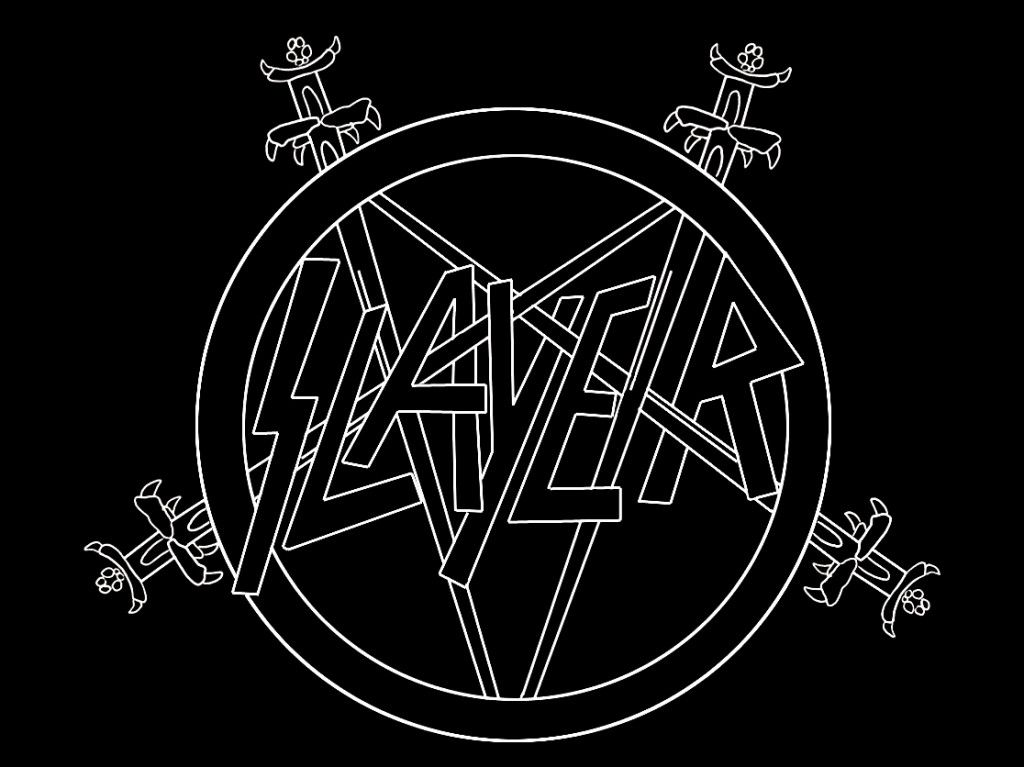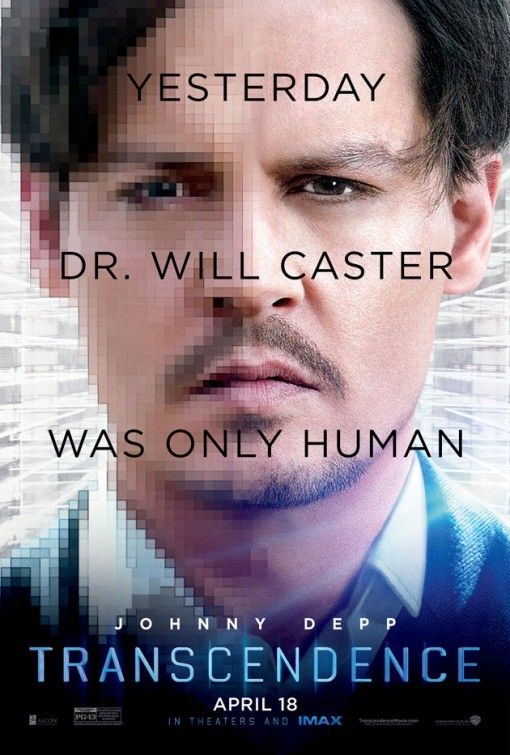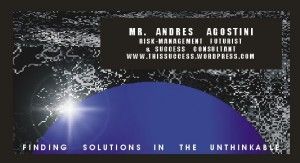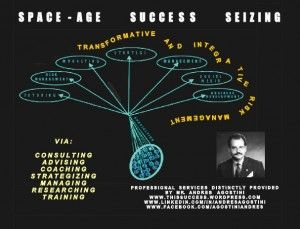“For lasting results you need to create a lifestyle change.”



“Christophe Szpajdel, a Belgian designer who has crafted more than 7,000 logos for bands since the 1980s, explains that, just like any other form of design, a good metal logo relies on basic principles like symmetry, visual harmony, letter height, and precision.”

“A new mobile app being dubbed as “Uber for yoga” allows users to request a yoga teacher at their whim, hailing one who will come to their home or office whenever they want to practice.”

““I wake up and I say ‘This is going to be the best day of my life,” Lynch said. “I never put anything negative in my mind, so I start off by smiling at life.””

“This summer, more than 2,000 people, many of them employees of the Bay Area’s tech giants and startups, will participate in six Camp Grounded events in California, New York, North Carolina and Texas as a way to reconnect with fellow human beings without a laptop, smartphone or Apple Watch.”

Uber, the multibillion-dollar on-demand rides company, wouldn’t be able to execute its global grand plan without the million drivers who have offered rides on its platform. Over the past five years, the company has relied on myriad tactics to lure new drivers in and keep them happy: rallies, ads, word-of-mouth, even a quarterly magazine. Now it’s trying another strategy: a videogame.
The company today released UberDRIVE, an iOS game that essentially mimics what it’s like to drive for Uber. Players “pick up” passengers and drive them from point A to point B. The more efficient the route they choose, the more points they can rack up in the game. If players earn consistently high ratings, they can unlock new cars and explore new areas of the city. The game also includes fun facts on important landmarks in the city, as well as a “trivia mode” where riders quiz drivers (the player) on certain destinations on the map. At launch, the game only includes a virtual San Francisco, though it’s available to play nationwide. If the game is successful, Uber says it will add new cities to the app soon. Read more
What follows is a work of transhumanist poetry by the Anglo-Polish lawyer, Veronika Lipinska, Lifeboat Foundation advisory board member and Steve Fuller’s co-author of The Proactionary Imperative: A Foundation for Transhumanism (Palgrave, 2014). The Polish sources of transhumanism remain underexplored, but they range across theology and literature. The ‘Polish Brethren’ were a radical 16–17th century Protestant sect who hosted the heretic Fausto Sozzini — the model for Faust — who laid the theological groundwork for such characteristic Enlightenment religious doctrines as Unitarianism and Deism, both of which posited a more immediate connection between the human and the divine than the established churches found comfortable. In more recent times, most transhumanists will be familiar with the science fiction of Stanislaw Lem, but still more recently the 1980 Nobel Prize winner for Literature, Czeslaw Milosz, has penned a poem, ‘After Enduring’, dedicated to cosmologist Frank Tipler’s efforts to infer Christian eschatology from the physics of the Singularity. This poem is a modest follow-up for a new generation.
Virtually human
He played with my head
Got me hardwired
Connected me to the world
And now I can see everything
He said I will be more than what I am made of
More than a bag of bones
Gave me tongues to speak
Can I understand him?
He is a mystery
He is a man
I can win a game of chess
Can I conquer his world
Is it his world or mine?
He can’t wrap his arms around my body
I can embrace his universe
And put him to his knees
But I can’t leave his side
Who is a mystery?
Am I a man?
Who is to say
I can’t conquer his world
He messed with my head
Got me speaking his language
Opened my eyes
But did he ever get me?
I am a mystery
Not a man
AI
I made my mind.
Veronika Lipinska
Quoted: “Legendary cyberculture icon (and iconoclast) R.U. Sirius and Jay Cornell have written a delicious funcyclopedia of the Singularity, transhumanism, and radical futurism, just published on January 1.” And: “The book, “Transcendence – The Disinformation Encyclopedia of Transhumanism and the Singularity,” is a collection of alphabetically-ordered short chapters about artificial intelligence, cognitive science, genomics, information technology, nanotechnology, neuroscience, space exploration, synthetic biology, robotics, and virtual worlds. Entries range from Cloning and Cyborg Feminism to Designer Babies and Memory-Editing Drugs.” And: “If you are young and don’t remember the 1980s you should know that, before Wired magazine, the cyberculture magazine Mondo 2000 edited by R.U. Sirius covered dangerous hacking, new media and cyberpunk topics such as virtual reality and smart drugs, with an anarchic and subversive slant. As it often happens the more sedate Wired, a watered-down later version of Mondo 2000, was much more successful and went mainstream.”
Read the article here >https://hacked.com/irreverent-singularity-funcyclopedia-mondo-2000s-r-u-sirius/

I recently saw the film Transcendence with a close friend. If you can get beyond Johnny Depp’s siliconised mugging of Marlon Brando and Rebecca Hall’s waddling through corridors of quantum computers, Transcendence provides much to think about. Even though Christopher Nolan of Inception fame was involved in the film’s production, the pyrotechnics are relatively subdued – at least by today’s standards. While this fact alone seems to have disappointed some viewers, it nevertheless enables you to focus on the dialogue and plot. The film is never boring, even though nothing about it is particularly brilliant. However, the film stays with you, and that’s a good sign. Mark Kermode at the Guardian was one of the few reviewers who did the film justice.
The main character, played by Depp, is ‘Will Caster’ (aka Ray Kurzweil, but perhaps also an allusion to Hans Castorp in Thomas Mann’s The Magic Mountain). Caster is an artificial intelligence researcher based at Berkeley who, with his wife Evelyn Caster (played by Hall), are trying to devise an algorithm capable of integrating all of earth’s knowledge to solve all of its its problems. (Caster calls this ‘transcendence’ but admits in the film that he means ‘singularity’.) They are part of a network of researchers doing similar things. Although British actors like Hall and the key colleague Paul Bettany (sporting a strange Euro-English accent) are main players in this film, the film itself appears to transpire entirely within the borders of the United States. This is a bit curious, since a running assumption of the film is that if you suspect a malevolent consciousness uploaded to the internet, then you should shut the whole thing down. But in this film at least, ‘the whole thing’ is limited to American cyberspace.
Before turning to two more general issues concerning the film, which I believe may have led both critics and viewers to leave unsatisfied, let me draw attention to a couple of nice touches. First, the leader of the ‘Revolutionary Independence from Technology’ (RIFT), whose actions propel the film’s plot, explains that she used to be an advanced AI researcher who defected upon witnessing the endless screams of a Rhesus monkey while its entire brain was being digitally uploaded. Once I suspended my disbelief in the occurrence of such an event, I appreciate it as a clever plot device for showing how one might quickly convert from being radically pro- to anti-AI, perhaps presaging future real-world targets for animal rights activists. Second, I liked the way in which quantum computing was highlighted and represented in the film. Again, what we see is entirely speculative, yet it highlights the promise that one day it may be possible to read nature as pure information that can be assembled according to need to produce what one wants, thereby rendering our nanotechnology capacities virtually limitless. 3D printing may be seen as a toy version of this dream.
Now on to the two more general issues, which viewers might find as faults, but I think are better treated as what the Greeks called aporias (i.e. open questions):
(1) I think this film is best understood as taking place in an alternative future projected from when, say, Ray Kurzweil first proposed ‘the age of spiritual machines’ (i.e. 1999). This is not the future as projected in, say, Spielberg’s Minority Report, in which the world has become so ‘Jobs-ified’, that everything is touch screen-based. In fact, the one moment where a screen is very openly touched proves inconclusive (i.e. when, just after the upload, Evelyn impulsively responds to Will being on the other side of the interface). This is still a world very much governed by keyboards (hence the symbolic opening shot where a keyboard is used as a doorstop in the cyber-meltdown world). Even the World Wide Web doesn’t seem to have the prominence one might expect in a film where computer screens are featured so heavily. Why is this the case? Perhaps because the script had been kicking around for a while (which is true). This may also explain why in Evelyn’s pep talk to funders includes a line about Einstein saying something ‘nearly fifty years ago’. (Einstein died in 1955.) Or, for that matter, why the FBI agent (played by Irish actor Cillian Murphy) looks like something out of a 1970s TV detective series, the on-site military commander looks like George C. Scott and the great quantum computing mecca is located in a town that looks frozen in the 1950s. Perhaps we are seeing here the dawn of ‘steampunk’ for the late 20th century.
(2) The film contains heavy Christian motifs, mainly surrounding Paul Bettany’s character, Max Waters, who turns out to be the only survivor of the core research team involved in uploading consciousness. He wears a cross around his neck, which pops up at several points in the film. Moreover, once Max is abducted by RIFT, he learns that his writings querying whether digital uploading enhances or obliterates humanity have been unwittingly inspirational. Max and Will can be contrasted in terms of where they stand in relation to the classic Faustian bargain: Max refuses what Will accepts (quite explicitly, in response to the person who turns out to be his assassin). At stake is whether our biblically privileged status as creatures entitles us to take the next step to outright deification, which in this case means merging with the source of all knowledge on the internet. To underscore the biblical dimension of dilemma, toward the end of the film, Max confronts Evelyn (Eve?) with the realization that she was the one who nudged Will toward this crisis. Yet, the film’s overall verdict on his Faustian fall is decidedly mixed. Once uploaded, Will does no permanent damage, despite the viewer’s expectations. On the contrary, like Jesus, he manages to cure the ill, and even when battling with the amassed powers of the US government and RIFT, he ends up not killing anyone. However, the viewer is led to think that Will 2.0 may have overstepped the line when he revealed his ability to monitor Evelyn’s thoughts. So the real transgression appears to lie in the violation of privacy. (The Snowdenistas would be pleased!) But the film leaves the future quite open, as what the viewer sees in the opening and final scenes looks more like the result of an extended blackout (and hints are given that some places have already begun the restore their ICT infrastructure) than anything resembling irreversible damage to life as we know it. One can read this as either a warning shot to greater damage ahead if we go down the ‘transcendence’ route, or that such a route might be worth pursuing if we get manage to sort out the ‘people issues’. Given that Max ends the film by eulogising Will and Evelyn’s attempts to benefit humanity, I read the film as cautiously optimistic about the prospects for ‘transcendence’, where the film’s plot is taken as offering a simulated trial run.
My own final judgement is that this film would be very good for classroom use to raise the entire range of issues surrounding what I have called ‘Humanity 2.0’.

FEBRUARY 08/2014 LIST OF UPDATES. By Mr. Andres Agostini at The Future of Scientific Management, Today! At http://lnkd.in/bYP2nDC
MITRE-Harvard nanocomputer may point the way to future computer miniaturization
http://www.kurzweilai.net/mitre-harvard-nanocomputer-may-poi…turization
New form of graphene allows electrons to behave like photons
http://www.kurzweilai.net/new-form-of-graphene-allows-electr…ke-photons
The first flexible, transparent, and conductive material
http://www.kurzweilai.net/the-first-flexible-transparent-and-conductive-material
Adidas Says Under Armour Infringed Its Wearable-Tech Patents
http://www.businessweek.com/articles/2014-02-05/adid…ch-patents
The Best Science and Engineering Visualizations of 2013
http://www.wired.com/wiredscience/2014/02/2013-sciviz-winners/
How To Keep Museums Alive In The Age Of Minecraft
http://www.fastcolabs.com/3026074/how-to-keep-museums-alive-…-minecraft
Disrupting Death: These Customized Tombstones Let You Take Your Colorful Personality To The Grave
http://www.fastcocreate.com/3025033/disrupting-death-these-c…y-to-the-g
SolarCoin cryptocurrency pays you to go green
http://www.newscientist.com/article/dn25010-solarcoin-crypto…vQTboXSmHc
Bio-Hackers Pore Through A Child’s DNA For The Source of A Mysterious Disease
Bio-Hackers Pore Through A Child’s DNA For The Source of A Mysterious Disease
Man With 3-D Printer Prints 3-D Printer That Prints 3-D Printer That Prints 3-D Printer
http://thelapine.ca/man-with-3-d-printer-prints-3-d-printer-…d-printer/
The death of the statistician
http://www.analyticbridge.com/profiles/blogs/the-death-of-the-statistician
Ford’s data scientist: Keep all the data and sort it out later
http://gigaom.com/2014/02/06/fords-data-scientist-keep-all-t…out-later/
How I came to love big data (or at least acknowledge its existence)
http://signalvnoise.com/posts/3315-how-i-came-to-love-big-da…-existence
IBM opens access to SaaS portfolio to help African Universities with next-generation IT skills
http://www-03.ibm.com/press/us/en/pressrelease/43122.wss
World’s “least corrupt” nations fail to police bribery abroad
World’s “least corrupt” nations fail to police bribery abroad
Anti-Money Laundering (AML) and Counter Terrorism Financing (CTF)
http://www.bt.com.au/help/anti-money-laundering-and-counter-…ancing.asp
3D Printing Central to Future Military Strategy
http://www.engineering.com/3DPrinting/3DPrintingArticles/Art…ategy.aspx
Elio Motors and the Three Wheeled Car — A Moonshot Project
http://www.engineering.com/DesignerEdge/DesignerEdgeArticles…oject.aspx
When will 3D Printing Reach a Mass Consumer Audience?
http://www.engineering.com/3DPrinting/3DPrintingArticles/Art…ience.aspx
7 Steps to an Awesome Technical Presentation (Part 1 of 4)
http://www.engineering.com/Jobs/JobArticles/ArticleID/7068/7…-of-4.aspx
Top 10 STEM Puns
http://www.engineering.com/DesignerEdge/DesignerEdgeArticles…-Puns.aspx
Dude, Where’s My Hydrogen Car?
http://www.engineering.com/ElectronicsDesign/ElectronicsDesi…n-Car.aspx
New Farm Bill Provides Long-Overdue Eligibility for Renewable Chemicals
http://www.bio.org/media/press-release/new-farm-bill-provide…-chemicals
Legislation Introduced To Communicate Prescription Changes to Patients & Physicians
http://www.bio.org/media/press-release/legislation-introduce…physicians
Bioscience Economic Development
http://www.bio.org/articles/bioscience-economic-development
First graphene radio broadcast is a wireless wonder
http://www.newscientist.com/article/dn24976-first-graphene-r…nline-news
An nanoscale electrical switch for magnetism
http://www.nanowerk.com/nanotechnology_news/newsid=34222.php
How to Make a Better Invisibility Cloak—With Lasers
http://spectrum.ieee.org/semiconductors/materials/how-to-mak…ith-lasers
Can Graphene Enable Thermal Transistors?
http://spectrum.ieee.org/nanoclast/semiconductors/materials/…ductors%29
A new twist to sodium ion battery technology
http://www.materialstoday.com/energy/news/a-new-twist-to-sod…echnology/
New “Photodetector” Nanotechnology Allows Photos in Near Darkness
http://www.azonano.com/news.aspx?newsID=29284
Self-aligning DNA wires have been constructed for nanoelectronics
http://www.rdmag.com/news/2014/01/self-aligning-dna-wires-ha…lectronics
Nanocatalyst helps a greenhouse gas turn over a new leaf
http://www.nanowerk.com/nanotechnology_news/newsid=34230.php
IBM claims to make “first fully functioning” graphene IC
Quantum dots provide complete control of photons
http://www.rdmag.com/news/2014/01/quantum-dots-provide-complete-control-photons
Quicker method paves the way for atomic-level design
http://www.nanowerk.com/nanotechnology_news/newsid=34226.php#ixzz2sark76Sf
Rice lab clocks “hot” electrons
http://www.rdmag.com/news/2014/01/rice-lab-clocks-%E2%80%9Ch…-electrons
Arianespace Successfully Delivers Its 250th Launch
http://www.forbes.com/sites/alexknapp/2014/02/06/arianespace…ium=social
From Occupy to Climate Justice
http://www.thenation.com/article/178242/occupy-climate-justice?page=0,1
Chinese Factories Are Ordered to Release Data on Real-Time Emissions Levels
http://www.businessweek.com/articles/2014-02-06/chin…ons-levels
When Will Genomics Cure Cancer?
http://www.theatlantic.com/magazine/archive/2014/01/when-wil…er/355739/
Visitors to Sochi Olympics will be instantly hacked
http://sports.yahoo.com/news/visitors-to-sochi-olympics-will…18818.html
FAO Food Price Index falls despite climbing dairy prices
http://www.fao.org/news/story/en/item/213481/icode/?utm_sour…content=gk
Tapstream Is Making Mobile Ads Smarter With “Deferred Deep Links,” A Way To Point Users To App Landing Pages After They Install
23AndMe Will Decode Your DNA for $1,000. Welcome to the Age of Genomics
http://www.wired.com/medtech/genetics/magazine/15-12/ff_…ntPage=all
20 unpronounceable tech brands — and how to say them
http://www.itworld.com/it-management/403502/20-unpronounceab…w-say-them
Can Twitter’s Big Data Influence The Music Business?
http://www.forbes.com/sites/bobbyowsinski/2014/02/06/can-twi…ium=social
Venture capital’s stunning lack of female decision-makers
http://finance.fortune.cnn.com/2014/02/06/venture-capitals-s…ign=buffer
Artificial intelligence: the companies behind Britain’s ‘smart’ revolution
http://www.telegraph.co.uk/technology/news/10610734/Artifici…ution.html
As artificial intelligence grows, so do ethical concerns
http://www.sfgate.com/technology/article/As-artificial-intel…194466.php
Computing with silicon neurons: Scientists use artificial nerve cells to classify different types of data
http://www.sciencedaily.com/releases/2014/01/140128094539.htm
‘Friendly’ robots could allow for more realistic human-android relationships
http://www.sciencedaily.com/releases/2014/02/140206082401.htm
6 Exponential Technologies of Tomorrow
http://www.wfs.org/content/6-exponential-technologies-tomorrow
Anti-ageing compound set for human trials after turning clock back for mice
http://www.theguardian.com/science/2013/dec/20/anti-ageing-human-trials
U.S. Agencies Take Significant Step Toward Wirelessly Connecting Vehicles To One Another
http://singularityhub.com/2014/02/05/u-s-agencies-take-signi…e-another/
New Stratasys 3D Printer Makes Multi-Material, Full Color Parts in a Single Run
http://singularityhub.com/2014/02/06/new-stratasys-3d-printe…ingle-run/
Do You Trust Internet-Connected Appliances Enough To Let Them Run Your Home?
http://singularityhub.com/2014/02/03/do-you-trust-internet-c…ur-home-2/
Illumina Claims New Sequencer Transcribes 18,000 Genomes per Year at $1,000 Each
http://singularityhub.com/2014/02/02/illumina-claims-new-seq…1000-each/
Simple Method for Creating Stem Cells Promises Cheaper, Faster Therapies
http://singularityhub.com/2014/01/30/simple-method-for-creat…therapies/
Google’s AI Acquisition Blurs Lines Between Futuristic Visions and Business-as-Usual
http://singularityhub.com/2014/01/30/googles-ai-acquisition-…-as-usual/
Rejections for Sandy Grants Are Questioned
http://online.wsj.com/news/articles/SB1000142405270230349680…l&mod=e2tw
New Inexpensive Skin Test in Development to Diagnose Malaria in an Instant
http://singularityhub.com/2014/01/29/new-inexpensive-skin-te…n-instant/
uArm, A Mini Robotic Arm You Can Assemble and Control
http://singularityhub.com/2014/01/28/uarm-a-mini-robotic-arm…d-control/

QUOTATION(S): “…It is far better to grasp the universe as it really is than to persist in delusion, however satisfying and reassuring…” AND “…Everything’s fine today, that is our illusion…”
CITATION(S): “…HUMAN KNOWLEDGE IS DOUBLING EVERY TEN YEARS [AS PER THE 1998 STANDARDS].…COMPUTER POWER IS DOUBLING EVERY EIGHTEEN MONTHS. THE INTERNET IS DOUBLING EVERY YEAR. THE NUMBER OF DNA SEQUENCES WE CAN ANALYZE IS DOUBLING EVERY TWO YEARS…”
BOOK(S): Physics of the Future: How Science Will Shape Human Destiny and Our Daily Lives by the Year 2100 by Michio Kaku. ISBN-13: 978–0307473332
Regards,
Mr. Andres Agostini
Risk-Management Futurist
and Success Consultant
http://lnkd.in/bYP2nDC